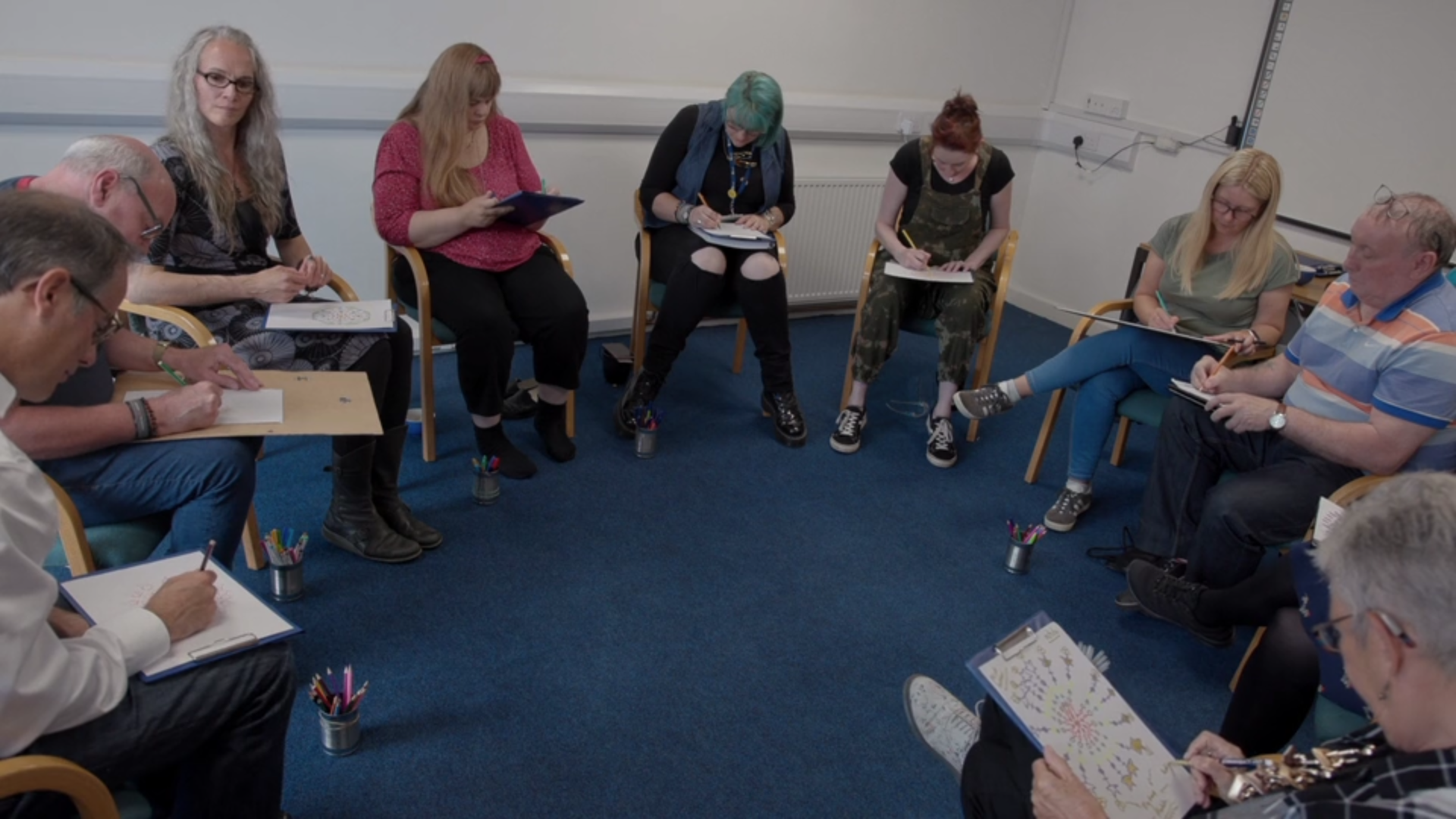The Arts for the Blues project has recently published an article ‘Arts for the Blues: The development of a new evidence-based creative group psychotherapy for depression’ which has been selected for inclusion in a new special virtual issue of Counselling and Psychotherapy Research to coincide with the National Institute for Health and Care Excellence (NICE) consultation on the guidelines for treating and managing depression in adults. The virtual issue is free access until the end of February 2022 and the Arts for the Blues article is here Arts for the Blues: The development of a new evidence‐based creative group psychotherapy for depression (wiley.com)
The NICE guideline is currently being consulted on until 12 January 2022 and below is some further information on what the draft guidelines contain, as well as how you can contribute to a response (courtesy of the British Association for Counselling and Psychotherapy (BACP)).
What does the draft guideline say?
This latest proposed draft guideline now offers a ‘menu of treatment’ options. NICE says people can pick which one is right for them after discussing this with their healthcare practitioners. It also says that people with mild, or less severe, depression should be offered treatments including cognitive behavioural therapy (CBT) counselling, psychotherapy, or exercise as their first option – ahead of anti-depressants. The guideline recommends that people with more severe depression should be offered a similar range of psychological interventions alongside the option of antidepressants. You can read more about the BACP’s thoughts on the consultation here.
Responding to the consultation
Anyone can respond to a consultation held by NICE, however NICE are only obligated to formally acknowledge and respond to responses submitted by stakeholders registered for the specific guideline. Registration is only open to organisations, not individuals. However, even if you’re not registered as a stakeholder, your comments will still be seen and reviewed by the Guideline Development Committee and potentially influence change in the final document, but they aren’t obliged to respond to your comments or publish them on the NICE website.
As an individual you could also contribute to a response being submitted by a registered stakeholder organisation; this could be your employer or a charity for example. A full and up to date list of registered stakeholders can be found on the guideline development page on NICE’s website. You can read more about responding to the consultation here.


